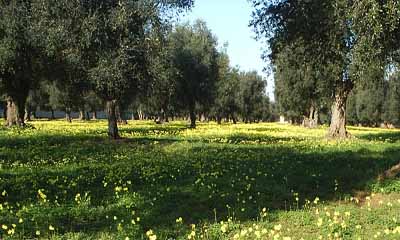The different methods through which land can be sold
There are several main methods through which land can be sold; whether this be On or Off Market:
- Private Treaty
- Auction
- Informal Tender
- Formal Tender
Private Treaty (about 60% of all land sales)
The majority of land in England and Wales is sold by Private Treaty. With this method of land sale, the land is marketed initially for an open ended period of time. During the sale process a written "Expression of Interest" or an invited viewing may be requested so as to filter the prospective buyers.
A "Best and Final" price may be requested from the prospective purchasers as a way of "drawing to a close" the sale. The request for the "Best and Final" price can be very formal with sealed bids, or can be relatively informal, implying further negotiation and "Dutch auction".
Note - A Dutch Auction is a form of auction is one where the auctioneer starts with a high asking price, which is then lowered until a bidder accepts the auctioneer's price. This is a quick way of auctioning goods, since a sale only requires one bid.
Auction (about 35% of all land sales)
With this method of land Sale, the public bid for the land (with or without a reserve). Exchange takes place at the fall of the hammer.
There are various reasons for putting land into auction. An Auction is a good method of sale:
- For corporate bodies - where they need to demonstrate that they have obtained an open market value.
- Where a guaranteed sale is required
- Where there are issues with the land (which the foolish may not appreciate)

Some Estate Agents specialise in Auctioning and put land to auction as a matter of course. Auctions avoid timewasters and can produce some very good Land prices. Land auctions are still very seasonal taking place either between:
- March to the third week of July
- September to 1st week of December
Informal Tender (about 5% of all land sales)
With this method of land sale the land is generally marketed with a date for sale by which purchasers must have submitted an open or a sealed bid. Offer envelopes are opened as they are received. Bidders may be invited to increase their bids, after being informed that a higher bid has been received following the closing date for initial bids.
The advantages of the Informal sales process are that it:
- formalises the sales process and creates a procedural surety around it.
- allows the agent to establish a clearer indication of the seriousness of the buyer (he may be asked for proof of funds).
- allows that agent to put all the guess work on the side of the buyer by asking them to name their maximum price If an acceptable offer is not received by the end date the land may then revert to a Private Treaty method of sale.
Formal Tender (Under 1% of all land sales)
The "formal tender" method of land sale invites offers by a firm closing date. Prospective buyers are supplied with a comprehensive legal pack with a specified exchange date on decision. Offers are returned in a sealed envelope, stating the contract to which they relates, but unmarked as to its sender. The offer envelopes are then opened together at the published date/time.
As soon as the "best bid" is selected, the bankers draft is accepted and contracts are automatically exchanged. The successful bidder is then committed to the contract and will have to complete the sale on the appointed date.
Formal tenders are rarely used in English and Welsh land sales. Their use usually denotes a complex sale of some description be that:
- An institutional sale
- A probate sale
- Land in trust
- Charity ownership
- Complex multiple ownership
Nov 2004
